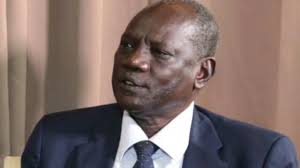
A graveyard with crosses remembering the Argentine soldiers who died during the Malvinas War. /CFP
By CGTN
It’s hard for Osvaldo Aguirre, a former Argentine soldier, to accept that he has to travel with a passport to a territory that he once defended from a colonial power.
On April 2, 1982, Argentina launched a military operation in a bid to retake the Malvinas Islands, which had been under Britain’s control since the 19th century. The war lasted a little over 10 weeks, and ended with the UK emerging victorious.
Though 40 years have passed, the war still casts a shadow over people in Argentina, especially the Malvinas war veterans.
“The most unforgettable memory was the fighting on the evening of May 1, when the British navy surprised us with heavy bombardment, the scale of which was haunting,” Ramon Lopez, president of the Federation of War Veterans of the Argentine Republic, told CGTN in an interview.
For Juan Carlos Sosa, secretary of the veteran organization, the most enduring memory was when he and his fellow servicemen were strafed by UK warplanes. “We were still being moved by trucks on our way to the frontline.”
Aguirre, who became a prisoner in the final moments of the war, said he was held by the British troops for 30 days in a deserted slaughterhouse. “The conditions were very terrible. We got one meal every 16 hours and we didn’t have access to a bathroom.”
The scars of the war continue to haunt Argentinians, who have ceaselessly demanded that Britain return to the negotiating table and face the legacy of colonialism.
“Our government is seeking to reclaim the sovereignty of the Malvinas through peaceful means, but Britain has so far not responded to our request,” Lopez said.
The war traumatized Latin America, Sosa said. “This hegemony of these countries that are imperialist in which they care absolutely nothing about the people and their sovereignty. What is important for them is to be able to conquer or take over territories that are important for them and let us bear in mind that Malvinas occupies a very important world strategic position for everyone and also a very important commercial issue.”



































